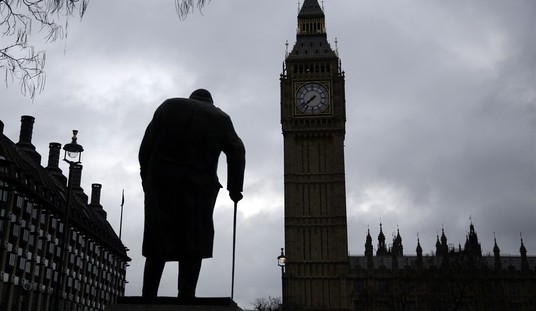Austin Bay on Monday night’s “Navy debate” between Obama and Romney:
Unfortunately, both candidates missed an opportunity to link very explicitly naval strategy to American economic revival and 21st century global economic security, which are, in a tandem as tight as Siamese twins, the election’s pivotal issues.
That linkage would have lifted the naval debate from numbers and gotcha to the truly presidential-level of geo-strategy and America’s global role.
Former British First Sea Lord Adm. Sir Jonathon Band understands the linkage: 95 percent of global trade passes through nine vulnerable maritime chokepoints. Jeremy Blackham and Gwyn Prins, in a 2010 issue of the Royal United Services Institute Journal, also credit Sir Jonathan with calling the sea the other “superhighway of the modern age.”
The 21st century’s best-known “superhighway” is the Internet. Blackham and Prins note that the two superhighways confront maritime bottlenecks. “Ninety percent of global email traffic is conveyed via undersea fiber-optic cables. These cables bunch in several critical sea areas (off New York … the English Channel, the South China Sea … and off the west coast of Japan).”
The geography-commerce-security linkage isn’t new. Global sea commerce (modern oil tankers or a Portuguese carrack) must traverse the narrow straits and vulnerable canals that connect the seas. Iran ritually threatens to close the Persian Gulf’s Strait of Hormuz to tankers. When it does, crude prices spike and economies gag on higher gas prices. Email-delivering undersea cables also traverse threatened straits, like the Bab-al-Mandeb, between the pirate-infested Gulf of Aden and the Red Sea, and the Straits of Malacca, which link the Indian and Pacific Oceans.
So everyone (not just Americans) who uses the Internet, and everyone (not just Americans) whose economy benefits from international trade, has an interest in securing maritime chokepoints.
Commerce — this nation’s lifeblood — only thrives when a commercial power rules the seas. In modern times, the British took up the job, and then we took it up from them. Economically, a naval power vacuum would be almost as bad as losing sea control to an enemy power.
Of the three major armed forces, the Navy takes the longest to build up to strength. It requires huge capital investments, training, and irreplaceable naval traditions passed down through the generations.
But the payoff is immeasurable. We squander the Navy and we squander everything.









Join the conversation as a VIP Member